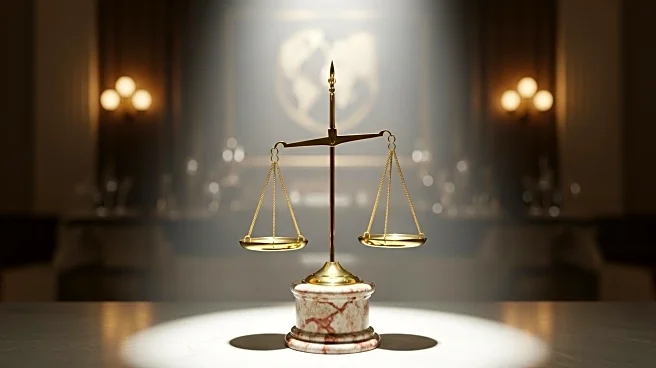What's Happening?
Free speech advocates, lawyers, and experts convened at Vanderbilt University in Nashville for the Global Free Speech Summit, focusing on the pressures facing the First Amendment in the United States. The summit highlighted concerns over the Trump administration's actions, which have been perceived as attempts to curtail certain types of speech. Discussions included survey data indicating that 65% of Americans fear speaking freely, and debates over whether the current period represents the worst moment for free speech in U.S. history. Harvard law professor Randall Kennedy argued that Trump's executive orders and disregard for the law have exacerbated the situation, while George Washington University law professor Jonathan Turley noted that federal courts have both supported and opposed Trump's actions, indicating a functioning legal system.
Why It's Important?
The summit underscores the growing concern over free speech in the U.S., with implications for public policy and societal norms. The Trump administration's policies, including targeting diversity programs and media criticism, have sparked debates about the balance between free expression and government intervention. The fear of speaking freely among Americans highlights a cultural shift that could impact political discourse and civic engagement. The role of higher education in promoting free speech is also critical, as universities face pressure to uphold First Amendment rights amidst political tensions.
What's Next?
The ongoing debate over free speech is likely to continue, with potential legal challenges and public discourse shaping future policies. Universities may need to enhance their efforts to educate students on free speech rights and responsibilities. The political landscape could see further polarization as stakeholders navigate the complexities of free expression in a divided nation. The summit's discussions may influence future legislative and executive actions regarding free speech protections.
Beyond the Headlines
The cultural shift towards 'cancel culture' and the increasing acceptance of violence to suppress opposing viewpoints pose ethical and societal challenges. The summit highlighted the need for respectful civic discourse and the dangers of identity politics overshadowing constructive debate. The implications for democracy and civil liberties are profound, as the nation grapples with maintaining a balance between free speech and societal harmony.









